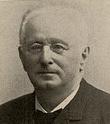Kali-brom [kali-br]
Brain irritated, face flushed, pupils dilated, eyes sunken; rolls head, awakens now and then screaming; extremities cold; discharges watery; twitching of hands and fingers; skin cold and clammy; collapse.
Kreosotum [Kreos]
Stomach so weak that it cannot retain or digest food, which is vomited either immediately or hours after eating (gastromalacia); VERY PAINFUL, DENTITION; CRAVING FOR SMOKED MEAT; child resists the tightening of anything around the abdomen which increases its pain and restlessness; bleeding or hiccough when child is carried, MUCH THIRST, GUMS HOT; coldness of hands and feet; stools watery, papescent, dark brown, containing undigested food and of cadaverous smell; PAINFUL DENTITION; incipient hydrocephaloid and somnolence.
Laurocerasus [Laur]
Severe cholera infantum; green watery stools; drink rolls audibly through oesophagus and intestines; suppression or retention of urine; dilated pupils; slow, feeble breathing; irregular, imperceptible pulse; skin cold and livid; constant thirst for cold water, refuses food.
Magnesia-carb [Mag-c]
Watery, yellowish-brown diarrhoea; milk causes pain in stomach and is ejected or passes bowels undigested; sour eructation, whole child smells sour; great thirst; especially evening; vomiting of mucus; extreme and rapid emaciation.
Natrum-phos [Nat-p]
Acid children from overfeeding with milk and sugar; sour eructations, vomiting of sour fluid or curdlike; greenish diarrhoea; crampy pain in bowels; golden-yellow coating of tongue.
Natrum-mur [Nat-m]
Watery diarrhoea with colic; incessant thirst with nausea; abdomen bloated; emaciation beginning at or principally at the neck.
Natrum-sulph [Nat-s]
Frequent attacks of violent colic, with rumbling in abdomen, (>) by violent discharge of yellow water with large quantities of flatus, stools more frequent during morning hours, after the child has been taken up and is moved about (Bryonia).
OEnothera-biennis [Oeno]
Summer diarrhoea, exhausting, watery, without effort, accompanied by cerebro-spinal exhaustion and even threatening hydrocephaloid.
Opium [Op]
Vomiting during heat of summer; child spreads its arms and legs as wide as possible, then lies prostate and helpless; the lower jaw drops and eyes are turned upward; face red or pale, pupils act sluggish or not at all, and there may be neither diarrhoea nor vomiting; FATALLY ADVANCING STUPOR, AS IF DRUGGED.
Oxalic-acid [Ox-ac]
Empty feeling in stomach, wants to nurse all the time; constant involuntary stools after eating and lying down; short; hurried breathing, fainting; hands and feet cold, as if dead, numb and weak; sweets disagree, aggravate pains and diarrhoea.
Phosphorus [Phos]
Diarrhoea and vomiting; desire for cold water which is thrown up as it becomes warm in stomach; diarrhoea (<) morning; stools consist of green, mucous, brown fluid, white mucus, or containing little grains like tallow.
Podophyllum [Podo]
Drowsiness or restless sleep, with grinding of teeth and rolling of head; vomiting of frothy, mucous, green matter or of food; diarrhoea (<) morning, discharges more frequent at night than during day (Petroleum, only during day); stools green, watery or mixed with mucus, or chalky, profuse and painless; prolapsus ani during or after stool; catarrhal cough during dentition; cramps of lower extremities; emaciation.
Psorinum [Psor]
Nervous and restless at night, awaken as if frightened, cry out during sleep, and after a few days diarrhoea follows, stools profuse, watery, dark-brown or black, putrid odor, (<) at night.
Secale-corn [Sec]
Great debility, vomiting and diarrhoea; pale face, sunken eyes, dry heat, quick pulse, restlessness and sleeplessness; great aversion to heat or to being covered; profuse, watery, offensive stools, in fits and starts.
Silicea [Sil]
Fontanelles open; much perspiration on head; great thirst; emaciation; rolling of head; suppressed urinary secretion; watery, very offensive stools (Calcarea, sour stools).
Sulphur [Sulph]
The disease generally begins after midnight with vomiting and diarrhoea; stools watery, green, involuntary, smelling sour or very offensive; sour vomiting (like Calcarea), with cold perspiration on face (Veratr., on forehead); pale face; fontanelles open; hands and feet cold from the start; the child lies in a stupor, with his eyes half open; not much thirst and entire suppression of urine. The child does not scream out violently as in Apis, not roll his head as under Belladonna; excoriating discharges.
Tabacum [Tab]
The child wants its abdomen uncovered, as it ears the nausea and vomiting produced by motion.
Veratrum-alb [Verat]
The least motion increases the nausea. Cold sweat on the forehead from vomiting, with great prostration; stool from the least movement of the body, thin and painless, with rumbling of the bowels; faintness at stool or immediately after; violent thirst for cold water, although the least quantity of fluid excites vomiting, with cold sweat, cold breath, and prostration; gushing, profuse, watery, flaky, often inodorous stools, with pains before stools, or cramps in hands and feet and spreading all over, or painless.
Veratrum-vir [Verat-v]
The disease has been induced by extreme heat; fever and headache, buzzing in ears, partial vision; vomiting; smallest quantity of food or drink is immediately ejected; stools mushy, preceded and followed by cutting in bowels; trembling, as if the child were frightened and on the verge of convulsions; paralysis.
Zincum [Zinc]
HYDROCEPHALOID; face pinched, contracted, cool; head boring in pillow; strabismus; pupils contracted, eyes staring; sleeps with eyes half closed; screaming out in sleep; throwing limbs around; urine scanty; stools of green mucus with hardly any faecal matter.

